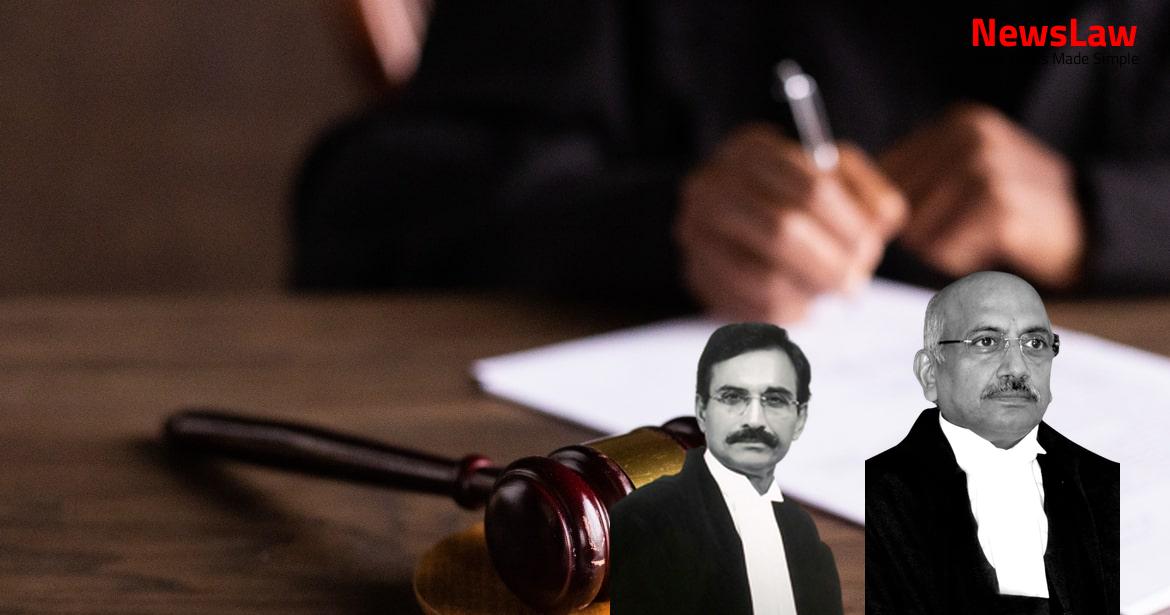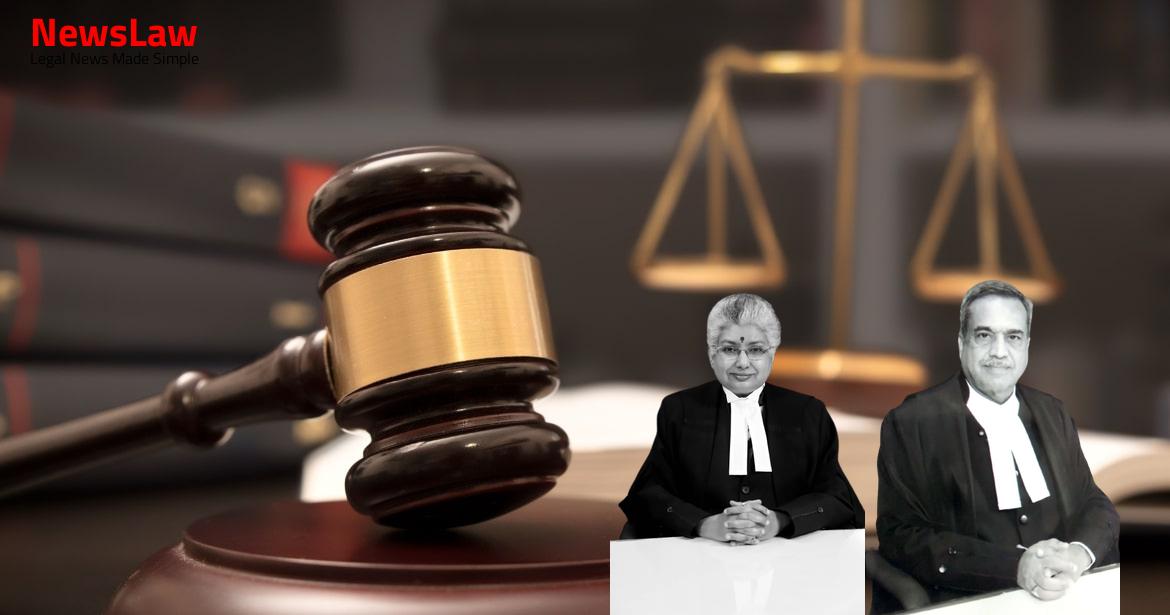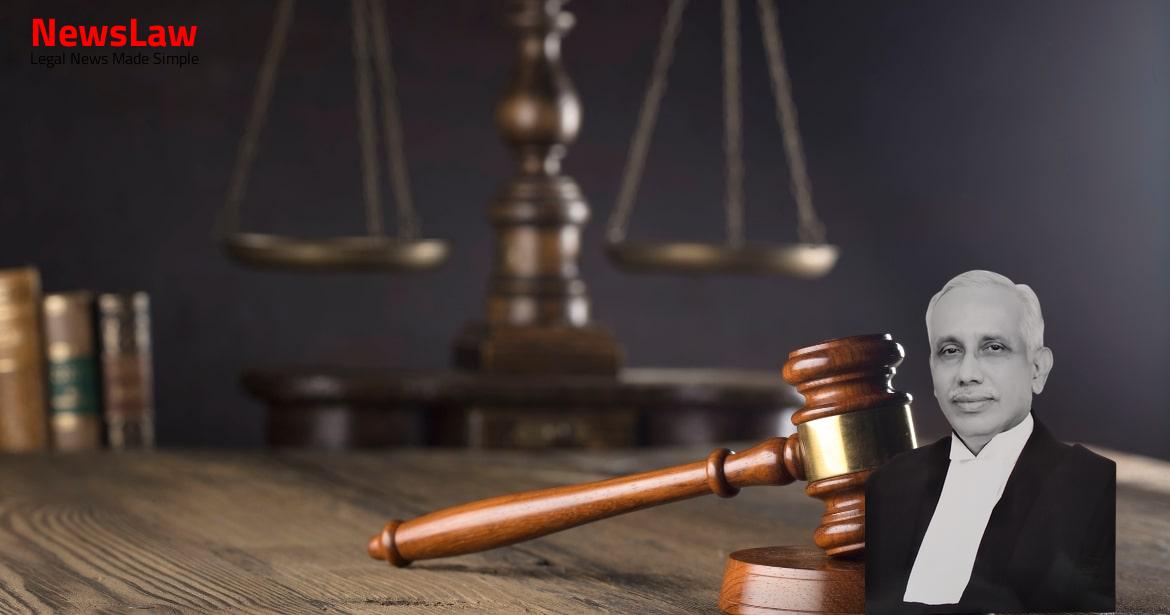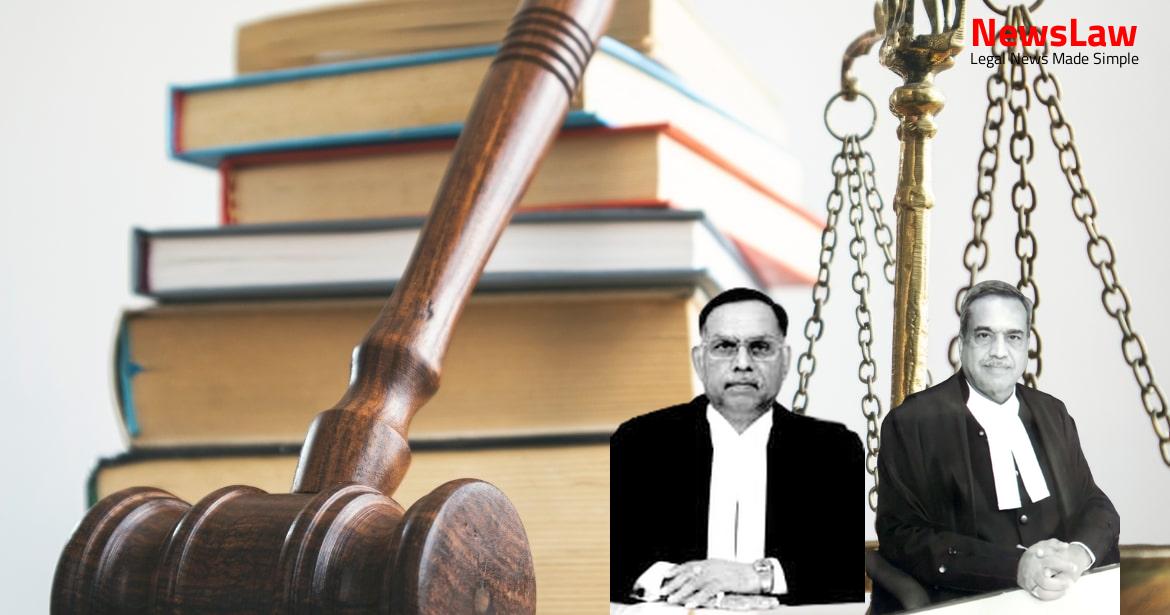In the case of Gulabrao Ananda Patil v. State Election Commission, the appellant challenges the order of disqualification imposed by the Collector for failing to submit election expenses on time. The case involves an appeal against the five-year disqualification from contesting elections. The appellant argues that the disqualification is disproportionate to the delay in filing expenses, citing health reasons. Follow the legal battle in this complex election law matter.
Facts
- Pradip Nimba Patil and Ritesh Suresh Patil filed writ petitions partly allowed setting aside the order of the Returning Officer rejecting objections.
- Relief claimed by Ritesh Suresh Patil to declare him elected as Sarpanch was not granted.
- Appellants Gulabrao Ananda Patil and Ritesh Suresh Patil are in appeal before the court.
- The disqualification applied only for Zilla Parishads and Panchayat Samiti elections, not for Gram Panchayat elections.
- Appellant Gulabrao Ananda Patil was elected as a Member of Village Panchayat.
- The Collector disqualified the appellant for five years due to non-submission of election expenses on time.
- High Court dismissed the writ petition filed by Gulabrao Ananda Patil.
- An appeal was filed against the order of the Returning Officer rejecting appellant’s nomination for Sarpanch.
- Appellant submitted a nomination on 21 September 2017 for the post of Sarpanch.
- Appellant’s explanation for delayed submission of expenses was due to ill-health, seeking condonation of the delay.
- Appeal against the order dismissing the objection raised by Pradip Nimba Patil was rejected.
- Appellant was required to submit election expenses within 30 days as per Section 14B of the 1959 Act.
- Appellant served with a show-cause notice for failure to submit election expenses.
- Writ petition filed by Ritesh Suresh Patil to set aside Gulabrao Ananda Patil’s election and declare himself elected as Sarpanch.
- Collector disqualified the appellant for five years for contesting elections.
- Appellant argued before the court that the disqualification order was passed mechanically without considering his explanation regarding ill-health.
- Appellant was required to submit election expenses within 30 days as per Maharashtra Zilla Parishads and Panchayat Samitis Act, 1961.
- Show-cause notice served to the appellant for failure to submit election expenses within the stipulated period.
- Appellant submitted explanation for delayed submission of expenses citing ill-health.
- Writ petition filed by Gulabrao Ananda Patil challenging the order of disqualification confirmed by the Divisional Commissioner.
- Results of the elections were declared on 2 December 2013 with Gulabrao Ananda Patil declared elected as Sarpanch.
- The High Court upheld the order disqualifying Gulabrao Ananda Patil from contesting elections for the next five years.
- Gulabrao Ananda Patil failed to submit any account of election expenses, leading to his disqualification.
- The disqualification was based on non-submission of election expenses within the prescribed period.
Also Read: Legal Analysis of Entrance Exam Regulations in AYUSH Courses
Arguments
- The appellant argues that the disqualification imposed is disproportionate to the default committed, considering the delay in filing election expenses due to health reasons.
- The order passed by the Returning Officer allows for the filing of an election petition under Section 15 of the 1959 Act and cannot be challenged through a writ petition based on Article 243-O of the Constitution of India.
- The appellant, a duly elected member of Panchayat, believes the disqualification is excessive without considering the extent of the default and the consequences of such disqualification.
- Arguments are presented against the inordinate delay in passing the disqualification order by the Collector, which started the period of disqualification from the date of the order.
- Reference is made to a judgment stating that the maximum period of disqualification is five years, but it can be for a shorter duration as per sub-section (2) of Section 14B of the 1959 Act.
- The disqualification under Section 15B of the 1961 Act pertains to contesting an election for being a Councillor.
- Learned counsel for the appellant argued that the appellant has substantially complied with the provisions of submitting election expenses.
- The learned counsel referred to the case of Commissioner of Central Excise, New Delhi v. Hari Chand Shri Gopal & Ors. to support this contention.
- It was highlighted that the onus lies heavily on the election petitioner to make a strong case for setting aside an election.
- Based on the arguments presented, the order of disqualification against the appellant was deemed not tenable.
Also Read: Challenging Foreign Contribution Regulations: Legal Analysis
Analysis
- Section 14B of the 1959 Act empowers the Election Commission to determine if there was a valid reason for the delay in submitting election expenses.
- The provision is aimed at maintaining the purity of elections and ensuring transparency in the process.
- The authority has the discretion to reduce the period of disqualification based on the circumstances of the case.
- The Statute does not mandate a fixed five-year disqualification for a 15-day delay in submitting expenses.
- The High Court found the medical certificate provided by the appellant lacked essential details and was not issued by a Competent Authority.
- The statutory provisions allow for the reduction or removal of disqualification on valid grounds.
- The judgment related to excise duty is not applicable to the election case under consideration.
- Article 243-O of the Constitution imposes a constitutional bar, leading to the insertion of Section 15A in 1994 for election matters.
- The medical certificate for delay in expense submission was insufficient and did not meet the required standards.
- The provisions in Section 14B of the 1959 Act and Section 15B of the 1961 Act grant authority to make just decisions regarding disqualification.
- Sub-section (1) of Section 14B empowers the State Election Commission to disqualify a candidate for not filing election expenses account without good reason.
- The Election Commission must record its satisfaction before passing the disqualification order.
- Disqualification for five years is not automatic for non-filing of election expenses account.
- Subsection (2) allows the State Election Commission to remove or reduce disqualification reasons as recorded.
- Article 243-O of the Constitution bars questioning panchayat elections except through an election petition as per State legislature’s laws.
- Article 329 of the Constitution of India states that election disputes can only be raised through an election petition.
- Respect for the verdict of the people at the polls is crucial and should not be disregarded based on vague allegations.
- Holding and enjoying an office after election is a valuable right for the candidate and the constituency or electoral college.
- Strict adherence to statutory procedures is necessary before justifying the removal of an elected official.
- The extent of disqualification period should be proportionate to the default committed by the candidate.
- Judicial review of penalties in elections is based on the doctrine of proportionality to uphold election purity.
- Illegalities in elections can vitiate the entire election process.
- Disqualification of a candidate under Section 14B of the 1959 Act leads to future disqualification from contests as well.
- Proportional punishment and strict adherence to statutory provisions are crucial when imposing disqualification on a candidate.
- Failure to consider the extent of default before imposing a five-year disqualification renders the decision illegal and untenable.
- The removal of an elected office bearer has serious repercussions and requires strict adherence to statutory provisions.
- Severer punishments require extra care to follow all safeguards provided in the statute.
- Election results, representing the collective will of the voters, should not be brushed aside lightly in election disputes.
- The High Court should not have entertained the writ petition as the order to furnish election expenses was valid.
- The appellant may be disqualified for up to five years, but the disqualification period must have tangible reasons to avoid being disproportionate.
- The order of disqualification for five years is set aside, and the matter is remitted to the Collector to consider the delay in furnishing election expenses.
- The order of disqualification will operate from the date of the order, including the delay in passing the disqualification order.
Also Read: Precedence of Secured Debt over Crown Debt: Legal Interpretation
Decision
- The order passed by the Collector on 3 November, 2014 and subsequent orders are set aside in part regarding the prescription of disqualification for a period of five years.
- The matter is remitted back to the Collector to consider the nature of default and purpose for which election expenses are sought to be furnished.
- The order of disqualification will be effective from the date it was originally passed, including any delay in passing the disqualification order.
- The period of disqualification, if any, will be operative from the date of the Collector’s order on 9 August, 2018, and any subsequent elections will depend on the final order from the Collector.
- For Civil Appeals arising from Special Leave Petitions, specific outcomes are mentioned for each case.
- The Collector is instructed to pass a fresh order regarding the period of disqualification in accordance with the law within one month of receiving a copy of this judgment.
Case Title: LAXMIBAI Vs. THE COLLECTOR NANDED (2020 INSC 197)
Case Number: C.A. No.-001622-001622 / 2020



